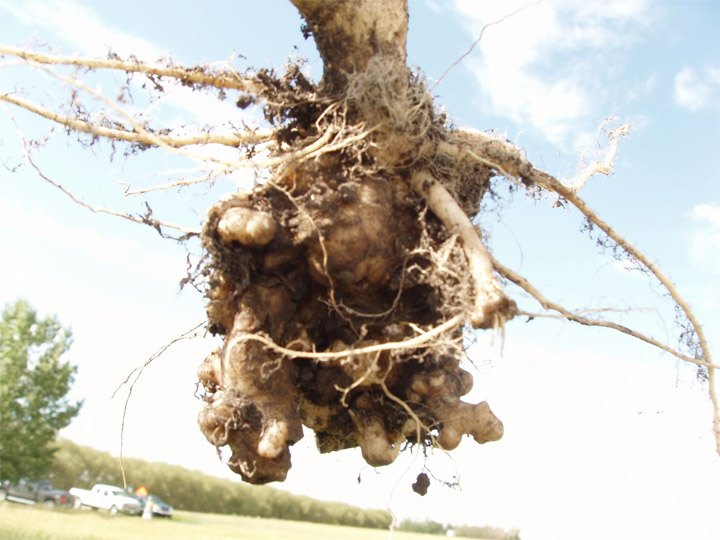SaskCanola said clubroot has been found in 37 northern Saskatchewan canola fields.

The province and SaskCanola conducted an extensive clubroot survey this year that involved 1,800 fields.
The organization said the affected fields were identified through the survey or reported to the Ministry of Agriculture. The specific locations were not released.
Doyle Wiebe, chairman of SaskCanola, said the findings affirm suspicions that clubroot is in Saskatchewan.

Get breaking National news
“SaskCanola is fully supportive of the ministry’s efforts in conducting the clubroot survey to formulate a distribution map,” Wiebe said in a statement.
“Our goal is to help canola growers prevent the introduction of clubroot into new areas and, where already present, to help them take steps to mitigate the disease.”
Ministry of Agriculture plant disease specialist Barb Ziesman said early detection of clubroot can lessen the impact on crop yields.
“Knowing that clubroot is present is valuable information as it will enable producers to make informed clubroot management plans,” Ziesman said.
“If clubroot is found early, it can be managed much more effectively with minimum impact on yield.”
The Canola Council of Canada said preventing the spread of clubroot spores through contaminated soil movement is critical to managing the disease.
Clubroot causes the premature death of some plants, including canola.
There have been nearly 3,000 confirmed cases of the serious soil-borne disease in Alberta since it was first reported in 2003.
– With files from the Canadian Press


Comments
Want to discuss? Please read our Commenting Policy first.